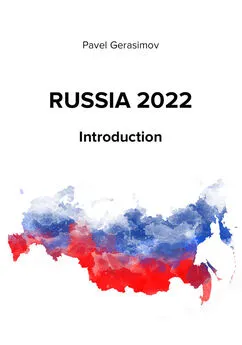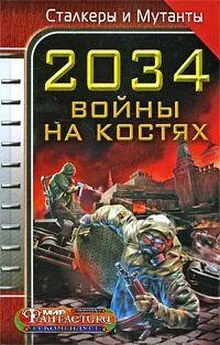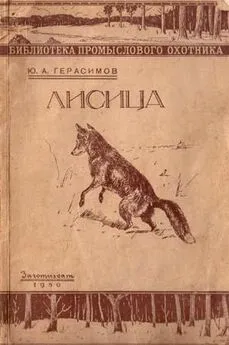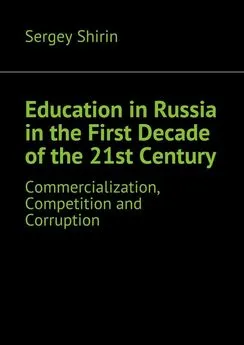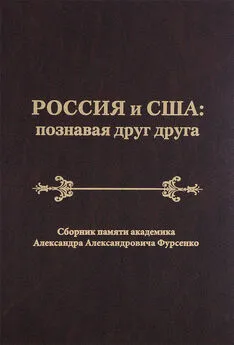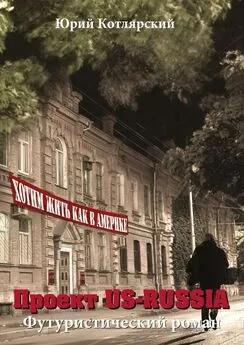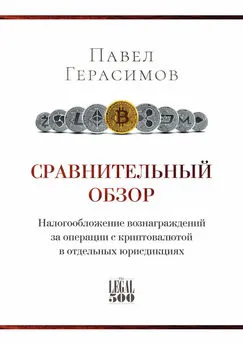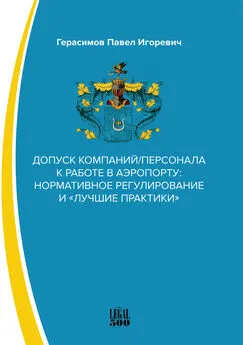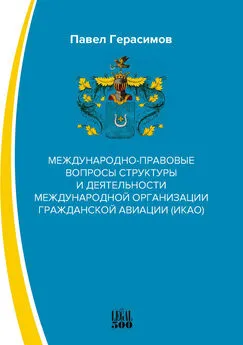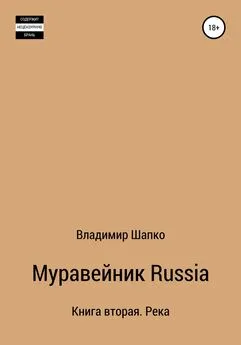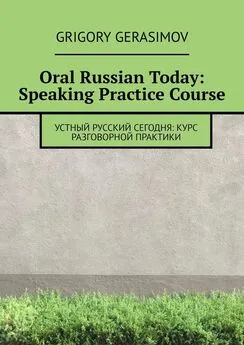Павел Герасимов - Russia 2022
- Название:Russia 2022
- Автор:
- Жанр:
- Издательство:неизвестно
- Год:неизвестен
- ISBN:978-5-00149-786-8
- Рейтинг:
- Избранное:Добавить в избранное
-
Отзывы:
-
Ваша оценка:
Павел Герасимов - Russia 2022 краткое содержание
Russia 2022 - читать онлайн бесплатно ознакомительный отрывок
Интервал:
Закладка:
RUS-225
The framework of the Russian legal system is created by the constitution, constitutions of the subjects of the Federation, decisions of the Constitutional Court, decisions and directives of the Supreme Court, international treaties, Federal constitutional laws and Federal laws, Regional laws and ordinances, municipal legal acts, directives and statements of the Central Bank and government ministries and state authorities.
The conflict of legal acts is resolved according to the juridical power of the legal acts. The Constitution has supreme power over the whole territory of Russia. Codes and Federal constitutional laws have more power than Federal laws. A conflict between Regional and Federal laws is decided in favor of a Regional law if one is admitted within the regional competence and vice versa. An international treaty that has been ratified has direct effect and precedence over domestic legislation.
Russia is a civil law country; decisions rendered by courts are not binding on other courts. However, the lower courts generally follow the principles established by the Supreme Courts. Moreover, according to art.304 of the Code of Procedure in Commercial Courts, the Economic Panel of the Supreme Court (until 2014 – Supreme Commercial Court) can set aside a decision of a lower court on the grounds that this decision contravenes uniformity in interpretation of law as established by case law. In practice precedents of the higher courts are becoming an important source of Russian law.
Useful Links / Government Contacts
RUS-250
Russian Law Resources in English: http://www.russianlawonline.com
President of the Russian Federation: http://president.kremlin.ru
The Russian administrative bodies: http://www.gov.ru
Security Council: http://www.scrf.gov.ru
The Council of the Federation: http://www.council.gov.ru
The State Duma: http://www.duma.gov.ru
The Government: http://www.pravitelstvo.gov.ru
The Constitutional Court: http://ks.rfnet.ru
The Supreme Court: http://www.supcourt.ru
Federal Courts: https://sudrf.ru/
The Central Bank: http://www.cbr.ru
The Central Electoral Commission: http://www.fci.ru
The Federal Tax Service: https://nalog.ru/
Unified Portal for State Services: https://gosuslugi.ru/
Finance
Imports and Exports
RUS-275
Russia is a member state of the Eurasian Economic Union (EAEU). Russia shares its customs and border regime with Armenia, Belarus, Kazakhstan and Kyrgyzstan.
The customs legislation is codified. It consists of the Customs Code of EAEU, and corresponding EAEU acts, treaties, Federal laws, orders of the President, ordinances of the Government and numerous regulations of the Federal Customs Service. On As an EAEU member, Russia also is a member of multiple free trade agreements (e.g. between EAEU and Singapore, Vietnam or Serbia).
RUS-300
The Federal Customs Service is a united centralised organization, which is answerable to the Government of the Russian Federation. It is responsible for control of imported and exported goods in the Russian Federation; the collection of customs payments, anti-dumping and compensations duties; the compilation of statistics; the prevention and restraint of cross-border fraud and the violation of the currency control regulation. The Federal Customs Service is a huge organization employing tens of thousands of people and is responsible for the major source of state revenues. It is often criticized for being a difficult and unpredictable organization. Yet, as governmental e-services spiked in Russia in recent years, many of the services are provided via the Federal Customs Service website, accelerating the decision-making process and making it more transparent.
Entry points
RUS-325
Goods may be imported into the Russian Federation through the entry points on the Russian border. Some goods, however, e.g. alcohol, tobacco or meat, can be imported only through specially designated places.
Import licenses and quotas
As a general rule, goods entering the Russian Federation can be imported without any restrictions. There is, however, a rather narrow list of goods which can only be imported with the authority of a license granted by the government such as, e.g. alcohol, encryption systems or military objects. In some cases the government imposes quotas or special duties on particular goods. This normally includes such goods as meat, fish or products of agriculture.
Since accession to the WTO, number of import quotas has been gradually falling, quotas being effectively replaced by import tariffs. Still, at the moment this report is being written quotas are imposed on several categories of goods, like metal or meat.
In 2021, however, several important changes in customs legislation come in force. Firstly, from January 1, 2021, customs duties are to be paid simultaneously with customs reporting unless the goods are imported from another EAEU member state. Also, new rules are set for expertice of imported items of cultural and artistic values and some medical products. In February 2021 (with a follow-up in April 2021) new rules for filing a customs declaration come into force, and from March 1, 2021, additional marks in paperback documents will not be made in case of electronic customs declaration filing.
Origin of goods
Goods are considered to originate in a country where they were wholly produced or largely processed. Documentary evidence, in the form of a certificate of origin, is normally required. The certificate must clearly state that goods originate in a particular country and the certificate must contain a written statement of the sender of the goods that they comply with a relevant criteria of origin. The statement must be witnessed by the state authorities of the sender’s country.
As a result of “counter-sanctions” after 2014 sanctions from EU/EEA and other countries, some products originating in the EU/EEA and/or some other countries which imposed sanctions on Russia are either only available to be imported in moderate amounts for personal use only or completely banned. This applies mostly to foods and delicacies (e.g. meat, dairy, fruits, vegetables, etc.), but the list is subject to change. So-called “counter-sanctions” were originally imposed in 2014 by an order of the President, and originally were to expire on August 6, 2015, but the order has been renewed annually ever since.
Customs payments
Customs payments include customs duty, VAT, excise, and a fee for the registration of goods.
Customs duty is usually charged as an ad valorem duty. An obligation to pay the duty arises the moment goods cross the customs border.
The principle method of the valuation of goods is the transaction method, based on the price actually paid for the goods. Once this method cannot be applied, in particular when there is no documentary evidence, or the information provided does not appear to be true, or when buyers acquire limited rights over goods or their rights depend on unpredictable circumstances, or when a transaction takes place between connected persons, customs officers can use other methods of valuation, for example those based on the price with identical or analogous goods, prices on internal market for similar products or even methods based on assumed production costs and delivery expenses and others. However, such valuation, as well as classification of goods to some extent, may be challenged in commercial courts.
Due to the CoViD-19 pandemic, reduced customs duty rates are currently applied to products of critical import and medical products that help fight the coronavirus (thode include some foods like potatos or rice and products of medical use like thermometers, endoscopes and some medicines). However, those reduced rates and reliefs expire on March 31, 2021.
Imported goods, generally, are subject to VAT. There are some exceptions; certain medical equipment is an example. Imported technological equipment contributed into a charter capital of a Russian company is also exempt of VAT. The VAT rate is 20 per cent; for some goods such as some items for children, certain medicines and food the VAT rate is 10 per cent.
A fee for the registration of goods depends on their customs valuation and is relatively small. From August 1, 2020, mininum fee for the registration of goods is RUR 775 (EUR 8.46) and the maximum fee is RUR 30,000 (EUR 327.42).
Some goods such as products of medical use, alcohol or oil are subject to excise. The excise rates are determined by the relevant legal acts.
Anti-dumping duties
Anti-dumping measures are taken when goods are imported into Russia at a price below that at which they are normally sold in their country of origin. A decision on the imposition of anti-dumping duties follows a special anti-dumping investigation and is made by the Government of the Russian Federation. Anti-dumping duties are most applicable towards machinery, machinery detais and some foods. Rates of anti-dumping duties are set by EAEU commission. For example, on February 25, 2021, expires an anti-dumping duty on steel pipes from Ukraine, and on August 18 expires an anti-dumping duty on truck tyres imported from PRC.
Compensation duties
The compensation duties are imposed by the government when the production of goods imported into Russia has been subsidized by a foreign state. The rate of compensation duty cannot be higher than an amount of the subsidy as related to one article of goods.
RUS-350
As a rule, an export from the Russian Federation does not require any permissions or licenses. In some cases, however, the government imposes restrictions (quotas) and/or licenses on the export of certain goods. Restrictions may normally be imposed on the export of oil, gas, certain natural resources, valuable sorts of timber, fish or sea products. Apart from these, the government may restrict exports for security reasons and in compliance with international obligations.
Generally, export duty is an ad valorem duty. However, goods exported from Russia to EAEU are not subject to export duties as EAEU Treaty effectively provides for single market for EAEU member states.
RUS-375
It is Russian policy to welcome foreign investments. Generally, as Russia is a WTO member state, the regime for foreign companies and the use of the received profit by them cannot be less favorable than the legal regime which is applied to Russian companies. The withdrawals limiting the rights of the foreign companies may be established by Federal laws in public interests (e.g. foreigners are prohibited from acquisition of land close to the border).
The Federal law “On foreign investments”, enforced from July 9, 1999 provides guarantees from any adverse changes to Russian legislation. In particular, new laws increasing tax burdens do not extend to Russian companies with foreign participation of 10 per cent or more of their capital or to any Russian company with foreign capital if such a company is engaged on a “priority project”; that is, one with a total amount of investments of at least RUR 1 billion (approximately €10,970,900) or where a foreign company purchases an equity interest of at least RUR 100 million (approximately €1,097,090). The exemption is granted during the project’s yield period, of no longer than seven years.
Читать дальшеИнтервал:
Закладка:
